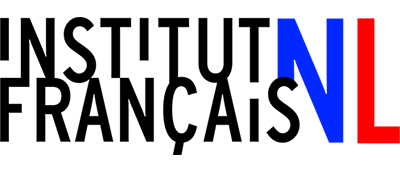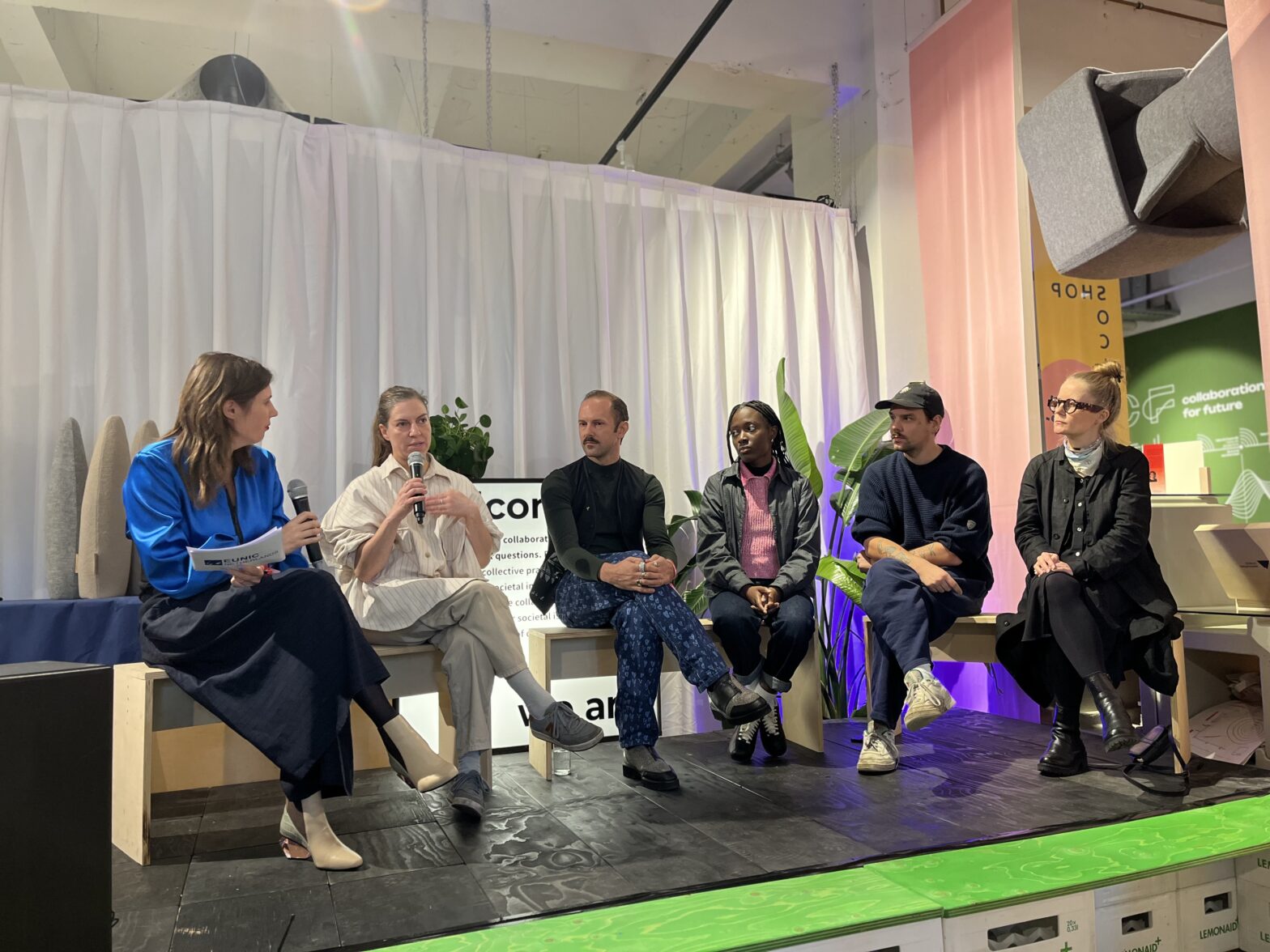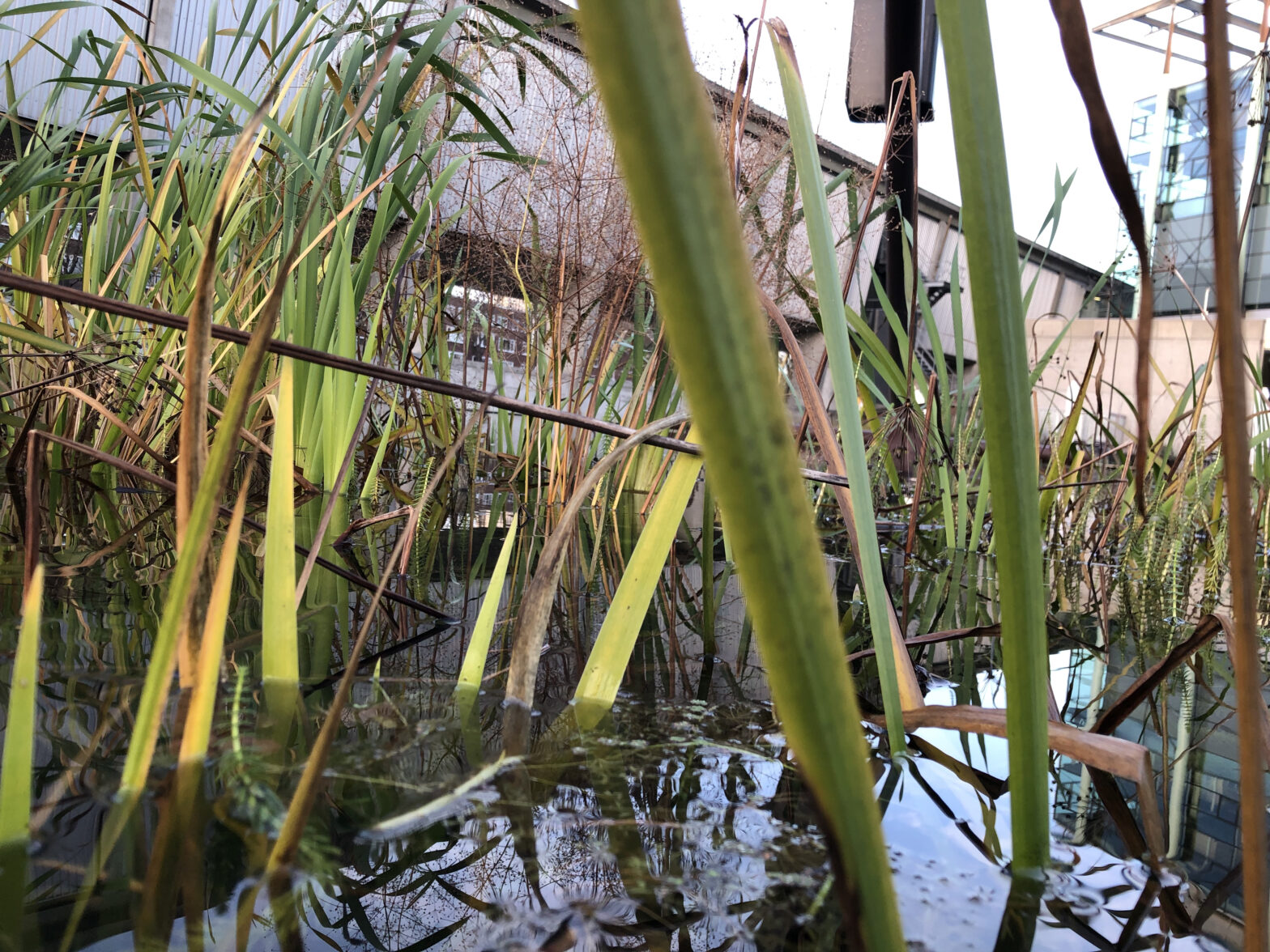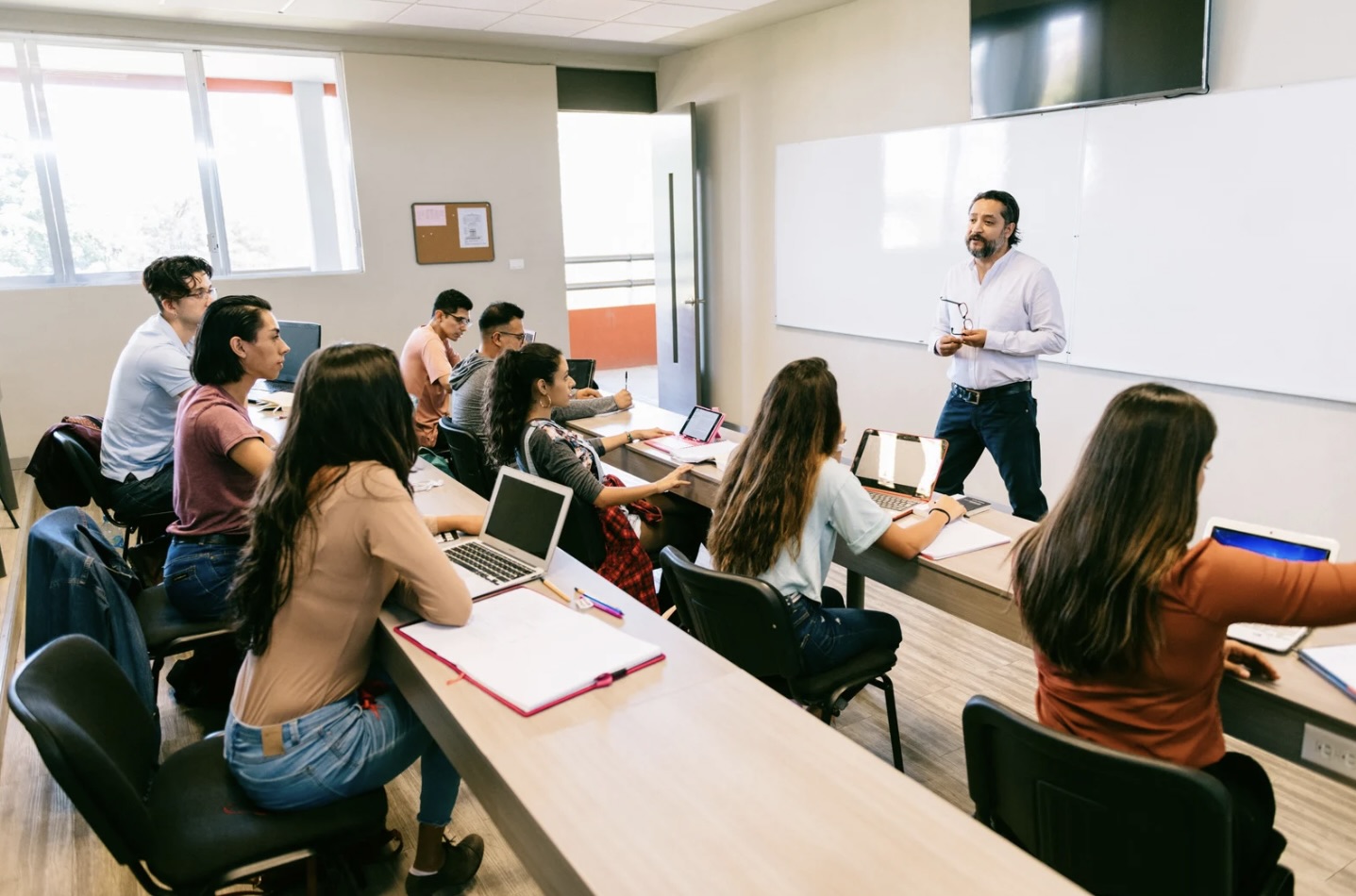Context
FAIR P(L)AY is a cycle of events initiated by the EUNIC Netherlands cluster focusing on fair practices in the cultural sector, aiming to discuss and implement new and existing ways of creating fair environments in terms of funding, remuneration, copyright and mobility in Europe.
This is a political, pressing issue of concern to creative professionals across Europe as the event came exactly one day after a group of MEPs adopted a proposal for a EU framework to improve living and working conditions for cultural and creative workers. The perceived “randomness” of differences in payment practices across the Union called for a pan-European conversation.
How do you establish yourself as a designer? What makes a professional designer? How do you know how much your work is worth? And how does that affect your own creative practice? Join us for a conversation on rewarding and sustainable design practices!
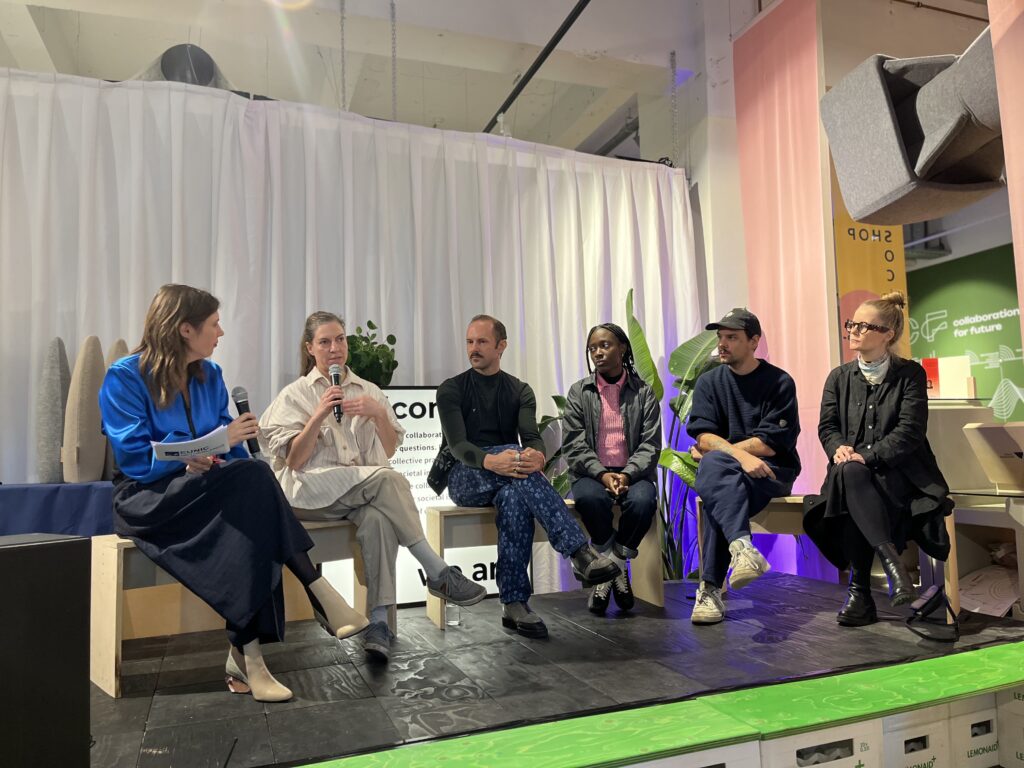
Panel Discussion
The third edition of EUNIC NL’s FAIR P(L)AY cycle started with a discussion between Mart Veldhuis (illustrator, the Netherlands), Wendy Owusu (designer, France), Hanna-Kaarina Heikkilä (designer, Finland), Branko Popovic (artistic director and curator, the Netherlands / ex-Yugoslavia), and Lisa Bergman (member of the board, Bundesverband Bildender Künstlerinnen und Künstler, Germany) with Maaike Muis (founder and artistic director of Circusstad Festival, the Netherlands) as the moderator.
Our discussion took place right in the middle of the creative hotbed, Strijp-S, during Dutch Design Week in Eindhoven. We covered the challenge of establishing oneself as an artist or a designer, who seeks to both balance visibility and fair compensation for their work. It provided practical advice on time-tracking tools, possibilities of joining a union and insights on how to manage the balance between artistic and commercial gigs, amongst other subjects. During the discussion, speakers and participants had the opportunity to share their experiences of fair practices in their respective countries.
“I think it’s great that it’s an international event and that we are representing different countries thus we operate on an international field. I think that this is a good starting point for Europe and for a large discussion about how we do things. I highly appreciated sharing this knowledge and listening to the stories.” Hanna-Kaarina Heikkilä (speaker, Finland)
Rules of the road
A few things we gathered as takeaways for all those who are engaged with the topic – especially for independent artists – but also for the wider circle of academies, institutes and curators.
1. Know your Worth
As an artist or designer, you have spent hours honing your craft and many of the examples brought up in our joint conversation still illustrate that it’s not appreciated as such – unpaid work for “exposure” or compensations below the minimum-wage in the form of vouchers seem commonplace around Europe. It’s time to change this.
“Unfortunately, if you work in the creative field, you must be interested in making some money. So you need to be aware of your own values as well. It’s something to keep in mind, that it is not your hobby but your profession. If you practise it you need to get some money from it to be able to live, bread and butter is not free.” Hanna-Kaarina Heikkilä (speaker, Finland)
2. Track your time. Meetings, preparations, travel, more meetings and feedback rounds.
All of this is part of the grind too, before you even get to the nitty-gritty of it. You have to bring this into the equation when sharing a quote. Different tools are available for free such as Everhour.
“If you work as an artistic designer or artist, you forget all the time you put into it. If you also consider the time it takes you to send emails or travel, you create a better negotiating position for everyone.” Maaike Muis (moderator)
3. Break the taboo and call for openness and transparency.
When negotiating, leave no room for opacity or misunderstanding. In various contexts, this topic has been treated as taboo, and it’s certainly not the artist who benefits from this.
“I’m happy that nowadays this discussion is out in the open and that people are more willing and more open to talk about it, also on behalf of institutions. A big takeaway is to be active and ask in order to find your way, dare to ask and solve your problems.” Maaike Muis (moderator)
4. Negotiate and come prepared.
Strive for a win-win for all parties, because, in an ideal situation, all parties are equally content. And if not, you could always simply refuse to undertake a project for which you would be poorly reimbursed.
“The tip from me, especially in the Netherlands, is to start high; I think that’s the average thing. Start high, trickle down and meet somewhere in the middle or hopefully a little bit above the middle.” Mart Veldhuis (speaker, The Netherlands)
5. Speak to alumni voices at arts & design academies to listen to the experiences they have had since starting out.
Their reflections about the meaning of Fair Pay are invaluable and can help you to discover how you can build a sustainable practice yourself.
“It’s a great advantage to be able to talk about what a designer’s career looks like during an internship or with graduates, because you can ask them very concrete questions, such as how to pay your taxes, whether it’s profitable to go freelance, the pros and cons of working for free. It gave me a more realistic idea of what I can expect after school.” Wendy Owusu (speaker, France)
6. Unionise! Join your peers in some type of union/association.
You might be an independent freelancer, but you’re far from alone. With a combined force, you can improve your position as an individual maker as well as that of your peers.
“My best advice is to talk to people, talk to European colleagues, go to associations, inform yourself about payment guidelines, there’s a lot to find for designers with just a few clicks on the internet.” Lisa Bergmann (speaker, Germany)
7. Reflect on what’s fair in international projects.
This question did not receive unanimous consensus and requires further study. Does everyone in an international project get paid the same, regardless of whether the fee corresponds to differing costs of living in different countries? What does fairness mean when applied on a long-term and global scale?
“I’m happy that this is an international collaboration, as we need this kind of conversation. If we don’t talk about it then no one knows there’s a problem. It helps if we do it with a larger group.” Branko Popovic (speaker, The Netherlands / former Yugoslavia)
Reading the room
Overall, there were approximately 35 participants, varying from students and graduates whose work was on display at the Design Academy Eindhoven’s graduation show, to more seasoned professionals and representatives of local cultural organisations such as the Dutch Design Foundation, Stichting Cultuur Eindhoven and We Are Foundation. This mixed attendance – institutes and designers alike – made for a highly dynamic atmosphere featuring active engagement from the audience who asked questions and shared their personal experiences regarding fair practices. Many mentioned that this is an important topic in the design field and they appreciated the tips they received, for example, a time-tracking tool which allows one to accurately estimate the costs which a specific project might incur.
“I feel like a lot of things were vocalised; things which most creative workers have flying around somewhere in the back of their heads but cannot really grasp. I am generally super interested in ways that creative workers can be helped: I just got funded for the first time in my life through the student council at my university, so I am excited and motivated to see what I can achieve with that and what other opportunities there will be.” A participating student reflected afterwards.
Concrete tips and resources to know your worth better
Don’t know where to start when considering what a good rate for your work might be? Check out these websites:
- Rekentool: cao-loon naar zzp-tarief | digiPACCT
- Fair pay – Kunstenbond
- Fair Practice Code | Gedragscode voor de culturele en creatieve sector
- Zelf het tarief bepalen | Fair Practice Code
If you are a designer, check whether the Driving Dutch Design programme is something for you. You can register until November 26. Should you have any questions, please contact Katja Lucas: Driving Dutch Design
The Cluster would like to thank moderator Maaike Muis and our panel of five artists. We greatly appreciate your candour and motivation to work towards a more fair, equal and sustainable sector.
Acknowledgements
We would like to give a special word of thanks to the Dutch Design Foundation and our venue partner, Foundation We Are. The EUNIC NL working group for Fair P(l)ay is: DutchCulture, Goethe-Institut e.V. Institut français NL, The Finnish Cultural Institute for the Benelux, The Austrian Embassy in the Netherlands, Czech Centre Netherlands, Vlaams Cultuurhuis de Brakke Grond. This event was made possible with the support of EUNIC Global Cluster Fund and supported by the European Commission.
Practical Information
- In the framework of : EUNIC Netherlands
- City : Eindhoven
- Date : 25 October 2023
- Partners : EUNIC Netherlands

